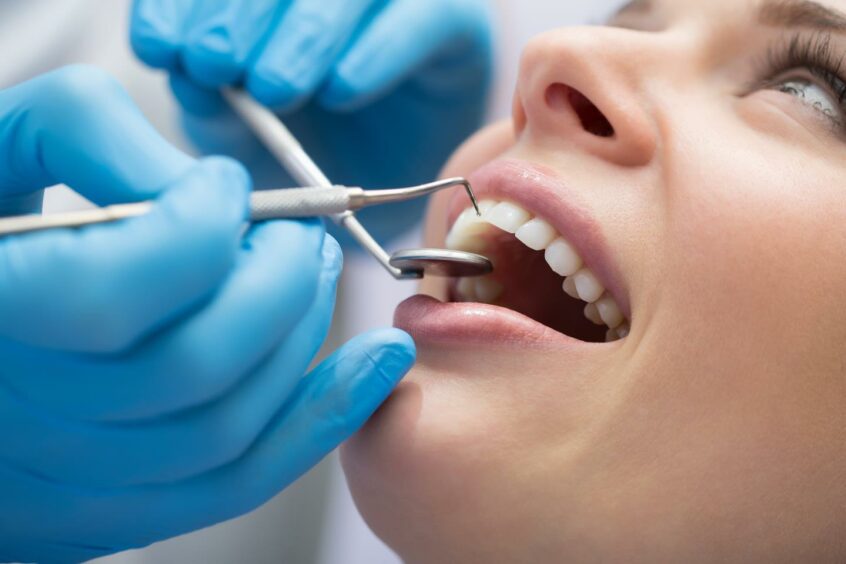Covid still dominates the health agenda, but two years of pandemic living has taken a toll. So, with the new year well underway, could it be worth checking in on our overall health?
Punishing clichéd resolutions are really not the prescription we’re going for right now though. Instead, we’ve asked experts to talk us through six key areas for a top-to-toe health roll call for 2022.
Are you sitting down too much?
Many of us are now more sedentary than ever – and that’s a big concern. “Too much sedentary time and sitting poorly leads to bone thinning and muscle weakness, which has a knock-on effect of lowering metabolism and interfering with blood-sugar regulation,” says psychologist and personal trainer Suzy Reading.
“Sitting reduces circulation, decreasing availability of nutrients and oxygen and impeding the removal of waste products, leading to swelling, stiffness and pain in muscles and joints.” Then there’s the impact on our mood, digestion, energy, pain and tension from slouching and “tech neck”.
“Listen to your body – if you are uncomfortable, what can you do to improve your set up? Set the intention to get up every 30 minutes. Even just getting out of your chair and having a shake-out can be enough,” she says.
Are you due any routine check-ups?
Thousands of medical appointments have been cancelled since the start of the pandemic, and many of us have fallen behind with routine checks. But as Dr Stephanie Ooi, GP at MyHealthcare Clinic in London, says: “Routine checks and screenings are really important. In the case of smear tests and mammograms, they can catch abnormal cells early and before cancer has a chance to spread. If you have an illness that needs regular monitoring, such as diabetes, check-ups are key in preventing your condition leading to other problems.
“If you are invited for a routine appointment, please make sure you attend,” Ooi urges. “Or if you believe you are due a screening test, contact your GP.”
Have you been ignoring niggles?
Similarly, if you’ve been putting off seeing your GP and ignoring niggles, heed Dr Ooi’s advice: “The healthcare system is under huge strain, but GPs are still very much there.”
This is especially important if you have any potential “red flag” symptoms. “If you notice any changes that cause concern – such as lumps, bleeding, unusual pain, a persistent cough that isn’t Covid, unexplained weight loss, etc – don’t delay in making an appointment,” says Dr Ooi.
Could sleep be a bigger priority?
“We’ve grown into a culture of filling all the hours of the day with activities, with sleep being the first thing that’s sacrificed when short on time,” says Samantha Briscoe, lead clinical physiologist at London Bridge Hospital. The added anxiety of the past couple of years hasn’t helped – but sleep really does underpin our overall health.
“During sleep, we give our body and mind time to recharge. Good quality sleep also helps the body remain healthy, supporting the immune system,” says Briscoe. “Without enough sleep, the brain cannot function properly. Poor quality sleep can also affect our body weight.”
Quality sleep is “the key for better physical and mental health”, Briscoe adds. “Maintaining a healthy lifestyle, reducing caffeine and taking regular exercise can all help our sleep quality.”
Are you getting enough time outdoors?
Staying home has been a big part of the pandemic, but time outdoors really is a tonic. “Any form of physical activity is great, but I make the case for walking, because it has the potential to combine several wellbeing practices,” says Counselling Directory member Wendy Nicholas.
Nicholas adds: “If you can manage your walk in the morning and make it anything over 20 minutes, you will be exposed to the sun’s rays, helping set key circadian rhythms and promoting better sleep.”
Is it time to see a dentist?
Unless you had a dental emergency, seeing the dentist may not have felt like a priority over the past two years – but it’s important not to leave routine check-ups too long.
“Dentists are trained to look out for a range of health problems, including early signs of cancer in the mouth and jawbone,” says Dr Azad Eyrumlu, of leading private dental firm Banning Dental Group. “It is always a race against time to identify, diagnose and treat oral cancers. The success of any treatment is dependent on how early it’s diagnosed.
“Meanwhile, gum disease may increase your risk of all kinds of other health complications, including stroke, diabetes and heart disease. These are just some of the reasons why visiting the dentist is important.”





